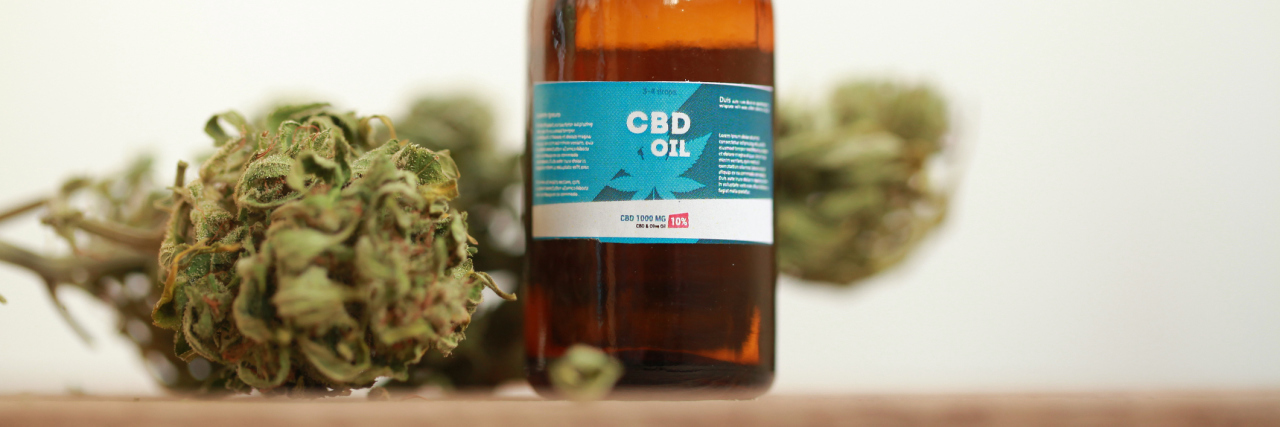How the Opioid Crisis and Marijuana Laws Force Me to Choose Between Working and Managing My Pain
I consumed my last bit of medical marijuana 30 minutes ago.
I’m listening to all my favorite songs. I am taking deep breaths and enjoying my last pain-free night for the foreseeable future. I know it may take months, years before the health care system provides me an opioid-free, benzodiazepines-free, controversy-free solution to my pain, an alternative to a solution I’ve already found, a solution that is safer than the solution they will find me. I may never be able to find a reality in which I will have both the opportunities I deserve, along with the quality of life I deserve, and can easily obtain.
I am an now ex-medical marijuana user. I am a driven individual who wants to make difference in the world. In order for me to have opportunities to make that difference, I must give up the idea of pain-free life. And, I am a victim of the opioid crisis.
Every since finding out about the field of phlebotomy, the act of drawing and testing blood, I have wanted to get my certificate. I wanted a way of working in an environment that might accommodate my needs better than average entry-level jobs while I go to college. Ultimately, when I was my sickest, nothing made me more relieved than a skilled phlebotomist providing me with a pain-free blood draw. I marveled at the skilled phlebotomist who would painlessly draw my blood while also cheering me up with happy banter and words of encouragement. I vowed that when I was better I would become them.
So I finished high school after missing it for months due to severe gastroparesis. I was so happy with the opportunity. However, as I was signing up, I realized I would have a drug test. Despite the fact that medical marijuana is legal in my state, and I have the proper paperwork, no hospital would accept me for an internship, a requirement to complete the program, if I didn’t test THC-free.
I realized all this last week as I went to fill out the information to go to phlebotomy school. I know how often I have to use marijuana to stop muscle spasms and aches from POTS and fibromyalgia at night. I know the FDA-approved medications I take for POTS and fibromyalgia don’t work. I know that despite going to Mayo Clinic’s pain rehabilitation and trying to exercise to improve my symptoms, ultimately I wasn’t able to live to the strict standard the program recommends to “cure” my POTS and chronic pain. And I know I will probably not find relief anytime soon. But I also know I want to have a job, and even in the more practical matter, I need start paying into SSI because it’s likely I will have to retire sometime around 40. So I signed up for phlebotomy school, and smoked my last remnant of marijuana.
I can’t lie. This has weighed on me so heavily and made me so sad that I have said things to friends that if a friend said to me, I would ask them to get help. I am getting help and have an appointment in two days to see a therapist. But ultimately my problems are caused by a systematic issue I have no control over.
People often share stories of young adults overdosing on opioids after having them prescribed for sports injuries. However, no one is reporting on the death of the chronic pain victim who dies by suicide due to unbearable pain because they aren’t given pain control. Or those who die by suicide after having their pain pill taken from them and being left in unbearable pain due to withdrawal and existing conditions.
Ultimately, touting that the solution to the opioid epidemic is to stop prescribing opioids without any solution, is creating the same situation as prohibition. We tried banning alcohol. What it lead to was people drinking unregulated and unsafe alcohol and death. It led to more alcoholism.
If we simply stop production of opioids, more people may be harmed because people might simply turn to illicit opioids. And ultimately, we are currently handling the situation by telling people to steer clear of opioids, while at the same time shaming people who use marijuana as a solution, and limiting their job opportunities. We are just isolating chronic pain victims.
In order to end the opioid crisis, I believe we must end the war on marijuana. We must make insurance fund “alternative” medicine solutions such chiropractors and acupuncturists.
Ultimately, we need to realize it is not fair to chronic pain patients to “accept” pain. We owe it to them to find alternative solutions. And we owe it to ourselves as a country to support chronically ill people.
I am a victim of the opioid crisis as much as I am a victim of chronic pain. And I’m tired of being a victim.
I want to be a survivor.
We want to hear your story. Become a Mighty contributor here.
Getty Image by OlegMalyshev

